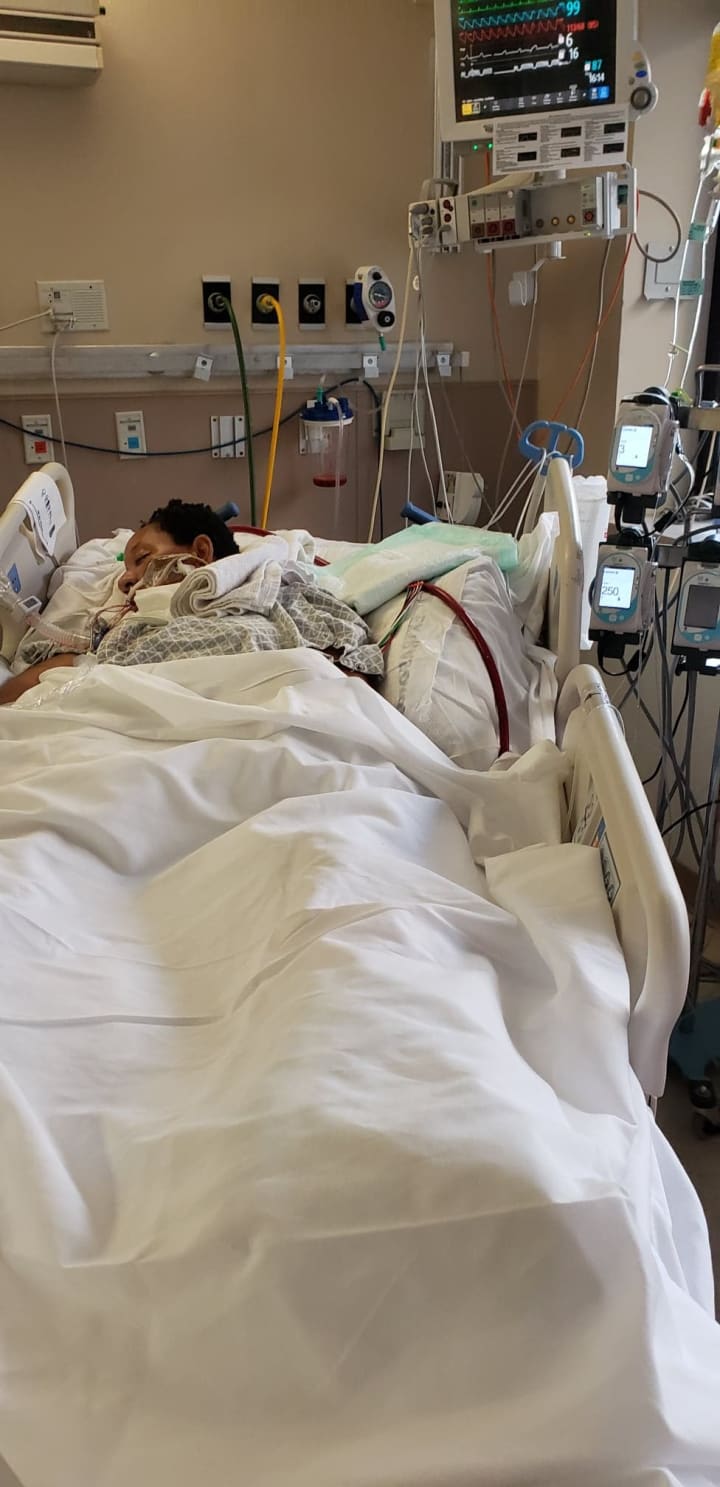Dear Medical Miracle
A letter to a strong woman

Hey You,
I’m writing to give you a heads up of what’s to come. You will face the most challenging times in your life and emerge triumphant because you are braver and stronger than you could have imagined prior to these experiences.
They’ll say you are a medical miracle. After you awake from your medically induced coma, you will be confused and forgetful, but you’ll be alive. A state your doctors and family members won’t believe you’ll remain in for long. In fact, your heart stops. Luckily, they’ll bring you back or else this letter would be useless.
There are things that occur while you are unconscious. Some of these things are worth knowing in order to give you a clear understanding of how life will change in your absence.
First of all, the kids are safe. Your ex-husband moves into your house in order to take care of the family. He doesn’t want to upset them even more by uprooting them. Being separated from you under the circumstances is difficult enough for them to cope with, but moving and traveling a greater distance to school would give added stress. Their grades will suffer a bit and they will be scared, but they'll be okay.
The fresh scars formed all over your body are a result of lifesaving medical attempts. The deep groove in your right thigh is from a muscle biopsy taken to test for a rare autoimmune disease. You test positive. It’s not lupus, like your mom had. It’s called polymyositis and it attacks the muscles. In your case, it destroys your lungs.
I know you won’t remember when you were put into a coma, but I’ll explain the order of events. You are transferred from one hospital to another at your own request. You aren’t feeling any improvement with your double pneumonia and want to go to Temple Lung Center to find out how you got so sick so fast? And of course, you want them to fix whatever is wrong with you.
You think you had a common cold, which turned to pneumonia in one lung, and then rapidly spread to the other. When you arrive at Temple Hospital, you are checked into a large, lovely room. This was set in motion by the hospital president’s secretary. You got the hookup since she’s your best friend’s mother.
Your oldest daughter is with you at the time. She briefly leaves the room and you head to the bathroom a few feet away from your bed. The exertion from the seemingly simple task leaves you breathless. Monitors start alarming the staff. Then things start moving really quickly.
Your daughter is left in the hall to watch countless staff rush to your side and prepare you for transport to the intensive care unit because your response to a quick trip to the bathroom was proving hazardous. Things get fuzzy during the transition, but you end up in ICU and they try giving you oxygen.
You’re not sure when the rest of the family arrives, but they are present. You cry and whisper, “help me.” Your youngest daughter sees and hears this and begins to cry too. Things are not improving because you are anxiety-filled and working against the life-saving efforts the staff make. I know you won’t recall this but late that night you text a few loved ones, “please help me.”
The next day, you will be placed in a medically induced coma because you are fighting the ventilators. So accustomed to being in control. So used to being stronger than the norm. You can not trust the doctors or the process even when it means saving your life.

Your scars are from procedures performed while you are oblivious. They are the evidence of attempts to connect you to an ECMO machine that serves to do the work of your heart and lungs for you. Doctors try going in through your neck, chest, groin, and thighs.
During one of the procedures, part of a plastic tourniquet breaks off in your chest. The risk outweighs the reward of retrieval so they leave the piece inside. During one of these attempts, your heart stops. They revive you. They finally figure out the best placement in your thigh for the lifeline you need.
You are in a prone position for 16 hours a day, much like a chicken in a rotisserie. You are flipped face down in order to reduce the pressure on your heart and lungs until you are ready for the double lung transplant you’ll need to survive.
You regularly bleed from your nose and mouth. You will be bloated, swollen, and constipated. Your eyes peer open just wide enough for onlookers to see you have lost muscle control of your eyeballs. You are an unpleasant sight to see, but you are unaware of all of it. You experience these things from May to July, and then you wake up.
While you wait months for a donor match, you’ll need to learn how to write, speak, and eat again. Walking will come later. Your muscle-attacking autoimmune disease coupled with a lengthy bedbound stint causes such weakness in your legs that you’ll walk like a toddler for quite a while.
You won’t cry. You did all that in the beginning. At this point, you’re just focusing on getting new lungs and getting better. You practice writing in order to communicate. Feelings slowly come back to body parts and your vocal cords start working again.
There will be a few moments when the doctors believe you will take your last breath, but they are wrong. Your donor is an “increased risk donor” as a former IV drug addict. She is 24 when she dies; the same age as your oldest daughter. Her last breath makes it possible for you to take your first unlabored breath and have a second chance at life.
Despite the pain, trauma, fear, and near-death experiences, you will eventually regain most of what you lost. You are powerful, strong, and persevering. And I’m just glad you’re still here to fight another day. You’re a stronger woman now than ever before, and I’m thankful to be alive to bear witness.
Love Always,
Yourself
About the Creator
Robin Jessie-Green
Temple University BA and AIU Online MBA Alumna.
Content Contributor for Medium, eHow, Examiner, Experts123, AnswerBag, Medicine-guides.com and various other sites spanning a decade.
Visit my Writing Portfolio to see what else I've written.






Comments
There are no comments for this story
Be the first to respond and start the conversation.